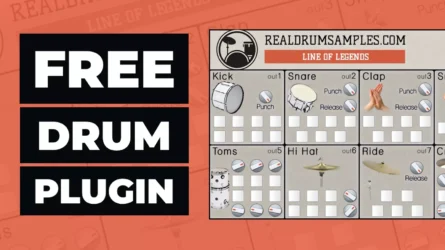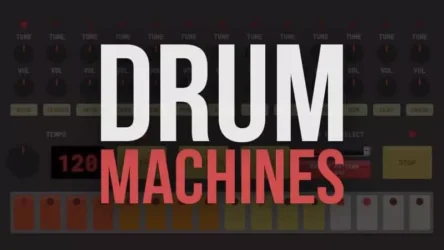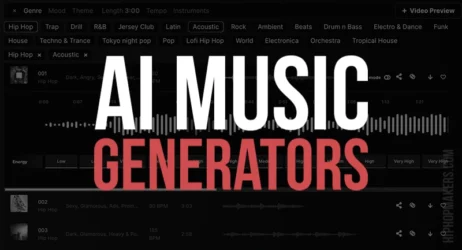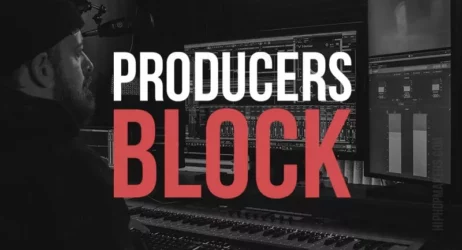Here are the best online audio engineering courses to learn beginner and advanced knowledge of audio production. Learn from industry experts.
Online audio engineering courses are a great way to get started with audio production without having to leave your home or spend thousands of dollars on tuition.
Audio engineers are in high demand, but it can be hard to find the time and money for formal training. Audio engineering courses are expensive and difficult to find.
Online courses are self-paced to learn at your own speed with no deadlines or pressure.
You’ll also have access to a community of like-minded students who will help answer any questions you might have along the way.
All these audio engineering courses are on Skillshare. You can get access to all these classes by signing up for a 30-day free trial. Cancel at any time.
Skillshare has thousands of online classes covering all music production aspects from audio recording, music theory, mixing, piano, and more.
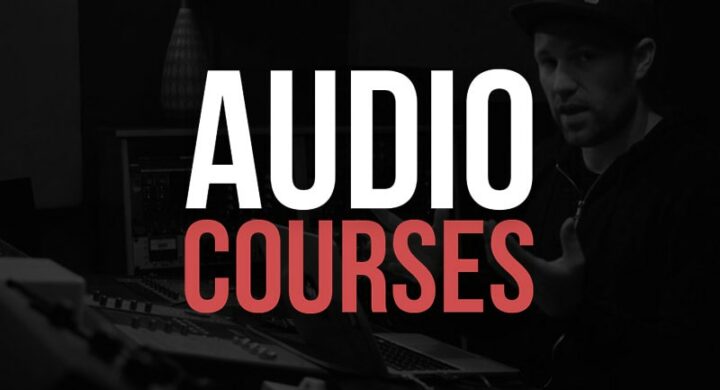
Related: What Is An Audio Engineer
This post contains affiliate links for which we receive a commission at no cost to you.
Best Audio Engineering Courses Online
There are countless online courses to choose from, but not all are created equal. Audio engineering courses come in many shapes and forms, so make sure you pick the course that’s best for your experience level.
Here are the best audio engineering courses online that will start you on your journey to becoming a pro.
- Home Recording Studio
- How Young Guru Engineers for Jay Z
- How to Mix Music with Young Guru
- How to Choose a Microphone
- The Basics of Music Producing
- Location Sound Recording Equipment
- How to Master Songs Like A Pro
- Record & Mix Better Audio
- How to Mix Audio for Tutorials & Podcasts
- Audio Recording Essentials
- Audio Mixing on the Go
- Compression Essentials
- How to Prepare a Vocal for Mix
- Audio Mastering in Logic Pro X
- Compression: A Quick, Easy Guide
1. Home Recording Studio ( Audio Engineering Basics )
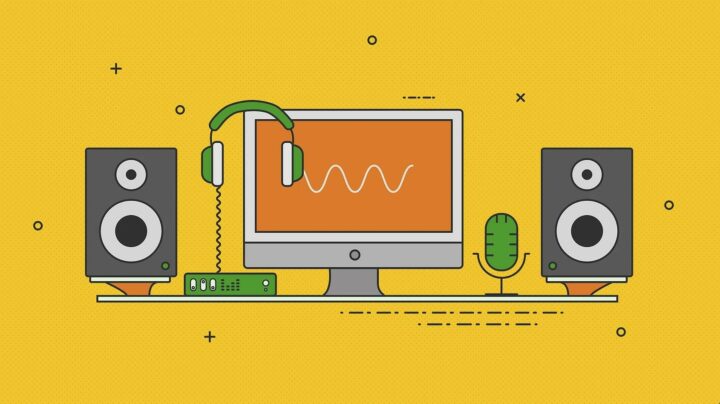
This course is a great resource for audio engineers, musicians, and music producers. The course focuses on the basics of audio engineering, such as using microphones, cables and stands, and audio interfaces.
This audio course will teach you everything you need to know before starting your first home recording studio. It covers everything from what type of mic you should use to how to set up a pop shield.
Also, it teaches students how to record with their mic or even a USB microphone and other instruments.
Students: 200+ | Rating: 99%
What’s Covered
- Microphones Overview
- Dynamic Microphones
- Condenser Microphones
- Lavalier or Clip Microphones
- Polar Patterns
- Cables
- Connectors
- Stands, Clips & Pop Shields
- Audio Interface
- Speakers
- Headphones
- Signal Flow
- Camera and Clip Mic
- USB Microphone
- External Recorder
- Audio Interface
- Distance and Proximity Effect
- Pop Shield
- Pencil Technique
- Headphone Mix
- Environment
- Listening
- Noise Floor
- Mono Vs. Stereo
- Effects on Input
- Buying the Right Gear
- How Often Should You Record
- What if You Mess up
- What if You Hate Your Voice
- Eating Before Recording
2. How Young Guru Engineers for Jay Z
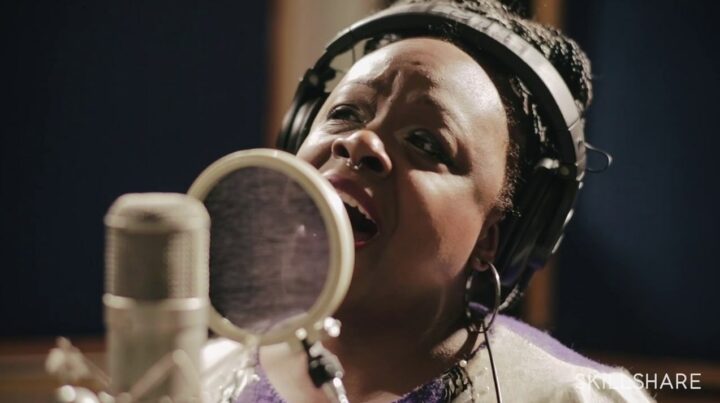
This course is an introduction to audio recording, and it’s designed for beginner audio engineers, musicians, and music producers.
You’ll learn about audio physics, how to choose the right microphone for the job, how to set up your recording space, and how to record vocals and instruments.
You’ll also learn about editing and finishing a recording. By the end of this course, you’ll have the skills you need to engineer your music at home or in a professional recording studio.
Students: 9,400+ | Rating: 92%
What’s Covered
- Understanding Audio Physics
- Choosing a Microphone
- Setting Up Your Recording Space
- Setting Up a Session
- Recording Rap Vocals
- Recording a Singer
- Learn Audio Engineering Skills
- Finishing the Recording
3. Learn How to Mix Music with Young Guru
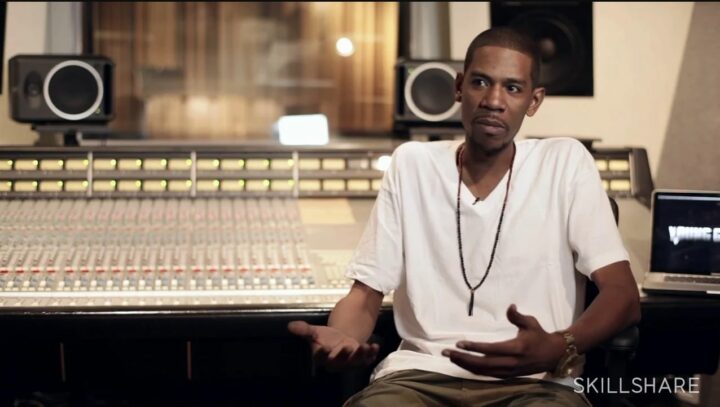
This course is designed to teach students how to mix music. Audio mixing includes organizing and determining levels, EQ, reverb, compression, and tonal balance.
Audio mixing is a valuable skill that can provide great satisfaction and a sense of accomplishment. Audio engineers who have a good sense of tone and sound will produce mixes true to the original sound being recorded.
Students: 9,400+ | Rating: 92%
What’s Covered
- Organizing a Mix
- Determining Levels
- EQ
- Reverb
- Compression
- Learn Basic Electronics
- Tonal Balance
4. How to Choose a Microphone: A Guide to Using Them
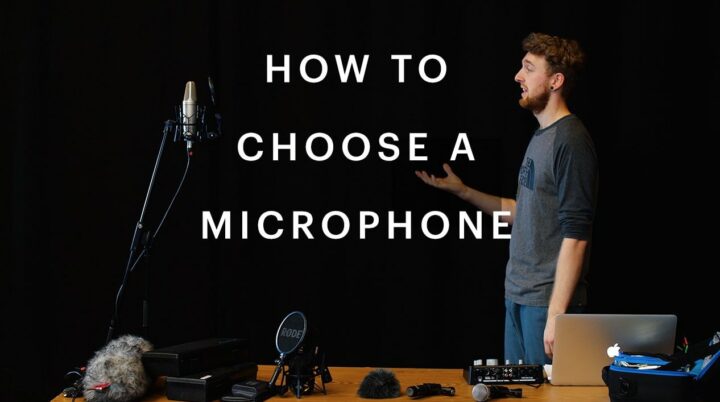
This course discusses how to choose a microphone. It covers the different types of microphones, how they work, and the different factors you need to consider when choosing one. It also provides some tips on how to use them effectively.
You must take this course if you are interested in learning the principles of how microphones work. The course also discusses some of the most widely used microphones for vocals, instruments, and even drums and how you can use them effectively.
Students: 150+ | Rating: 99%
What’s Covered
- How Microphones Work
- Types of Microphones
- Polar Pick-Up Patterns
- Frequency Response
- Cables and Connectors
- Plosive and Wind Protection
- How to Choose a Microphone
5. The Basics of Music Producing
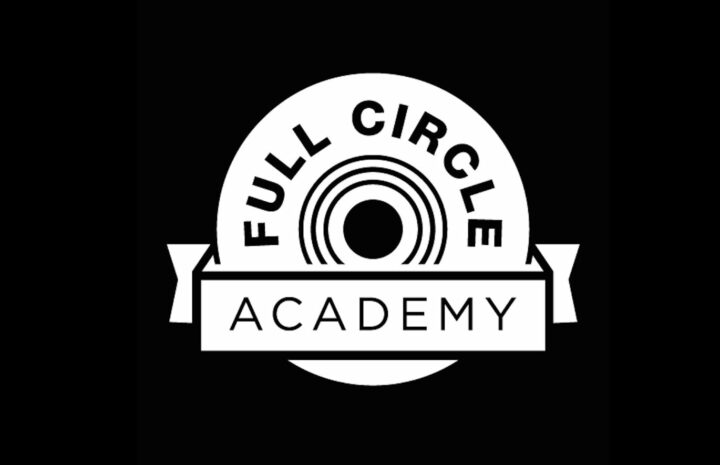
If you’re looking for a way to break into music production or take your skills to the next level after years of experience, this course is what you need. Audio engineering and music production courses like this one teach how to produce and master your tracks and help you get ready for work as a freelance sound engineer.
The course covers all the basics you need to know about production including, engineering, mixing, mastering, and editing. It also covers gear like microphones and guitars and the fundamentals of how to record tracks such as properly setting up mics and recording guitars.`
Students: 3,400+ | Rating: 78%
What’s Covered
- The Basics of Production Intro
- Gear
- Engineering
- Mixing
- Editing
- Mastering
- The Basics of Production Outro
6. Location Sound Recording & Recordist Equipment
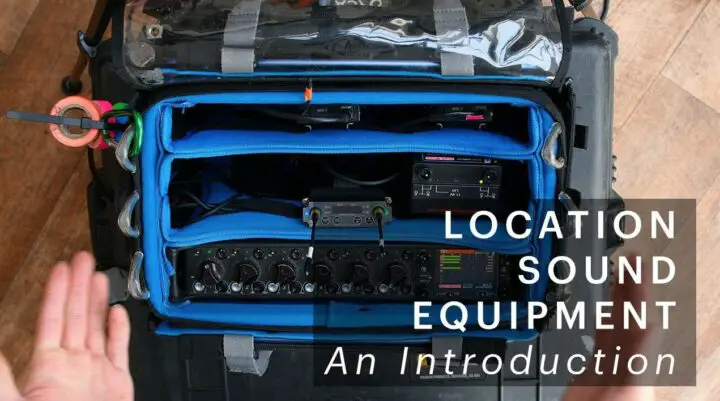
This audio engineering course is targeted at video and film professionals who want to learn how to record sound effects in a studio setting.
You will learn the basics of microphone types, the tools, and the equipment you need and learn about some advanced audio engineering techniques.
Students: 150+ | Rating: 99%
What’s Covered
- Sound Bags/ Cases
- Audio Mixers/ Recorders
- Boom Microphones
- Lapel/ Lavalier Mics
- Wireless Systems
- Other Uses Of Wireless Systems
- Timecode
- Pro Audio Cables
- Accessories
7. How to Master Songs Like A Pro w/ Young Guru
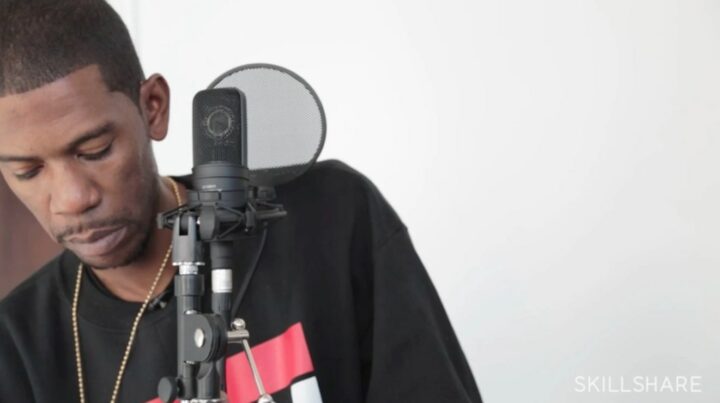
This online audio engineering course is taught by one of the world’s most renowned engineers, and it will teach you all the ins and outs of mastering audio.
You’ll learn how to control the frequencies inside your studio, mic placement, and how to use the equipment. By the end of this course, you’ll be able to master your music professionally.
Students: 6,300+ | Rating: 91%
What’s Covered
- Working with Your Room
- Sound Conditioning
- Controlling the Frequencies Inside Your Studio
- Equipment
- Mic Placement
8. Audio Production: Record & Mix Better Audio
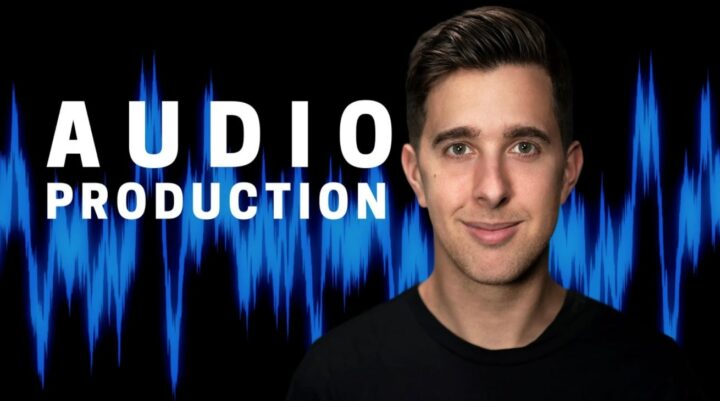
This audio production course is of great value to sound professionals looking for immersive, comprehensive, and up-to-the-minute training.
Audio engineering is the most in-demand career field of all time. By taking this course, you’ll be able to learn how to record and mix audio, music, sound effects, and even create a full-length album.
Students: 650+ | Rating: 99%
What’s Covered
- My Recommended Budget Audio Recording Setup
- Microphones For Video And Filmmakers
- Different Microphones And Their Uses
- Microphone Accessories
- Boom Operating Tips
- Microphone Accessories To Reduce Wind Noise
- Audio Interfaces And Examples
- Headphones And Monitors
- Room Treatment Tips
- Room Treatment Example
- My Recommended Audio Travel Gear
- Do You Need To Mix Your Audio?
- Which Audio Editing Software Should You Use?
- How To Install Pro Tools First
- Recording Audio Setup
- Getting Started In Pro Tools First
- Recording Audio With The Built-in Mac Microphone – Mac Only
- Importing And Editing Audio
9. How to Mix Audio for Tutorials and Podcasts in Logic
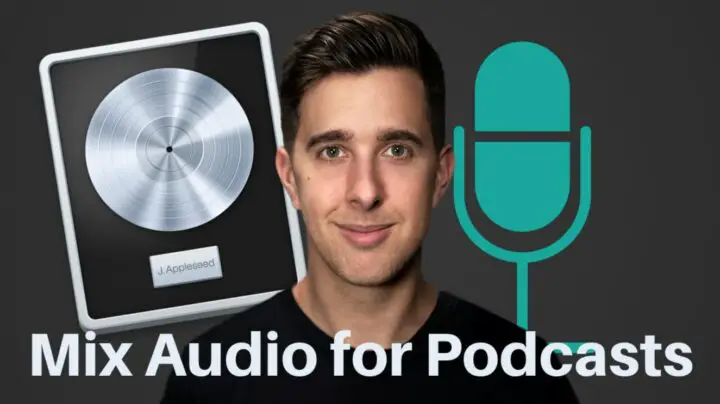
This course will teach the basics of audio engineering, such as noise gate, equalizer, de-esser, compressor, and limiter. You will also learn about automation and export settings.
This course is perfect for beginner and pro audio engineers alike since it covers all the basics of audio engineering.
Students: 900+ | Rating: 72%
What’s Covered
- Noise Gate
- Equalizer
- De-Esser
- Compressor
- Another De-Esser after the Compressor
- Gain
- Limiter and Loudness Meter
- Automation
- Export Settings
- Before You Mix
- The Plugins I’m using for my Voice right now
- Outboard Gear – The DBX 286s
10. Audio Recording Essentials ( Recording Audio Tips )
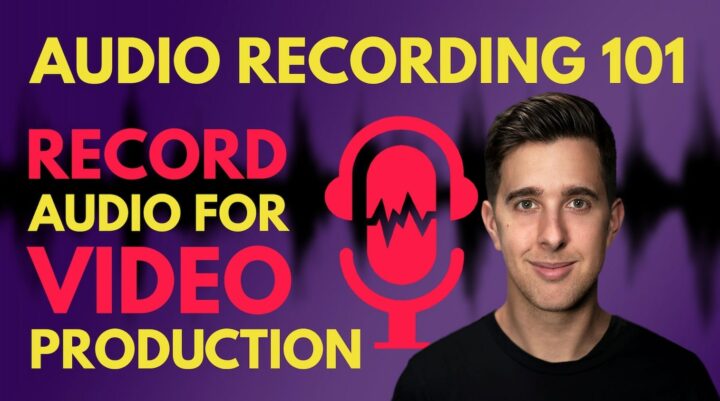
This audio recording essentials course is great for beginners and experienced audio engineers. The course provides a comprehensive overview of the audio engineering process, from capturing audio to mixing and mastering.
What’s Covered
- Listen to your Recording Environment
- Room Treatment Tips
- Dynamic vs. Condenser Microphones
- Recommended Pro-Level Microphones
- Recommended Budget Level Mics
- Microphone Comparisons
- Audio Interfaces
- Recommended Pro-Level Audio Interfaces
- Recommended Budget Level Audio Interfaces
- My Thoughts on USB Microphones
- Microphone Positioning and Accessories
- Essential Microphone Polar Patterns
- Recommended Monitors and Headphones
- Other Audio Monitoring Tips
- Capturing Audio Introduction
- Recommend Audio Recording Software and DAWs
- A Quick Look at Some Handy Recorders
- My Audio Recording Equipment
11. Audio Mixing on the Go: Pro Sound Without A Studio
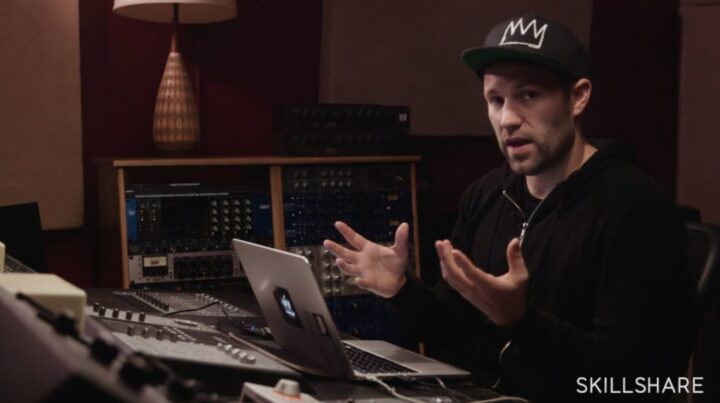
This course is designed to show you how to mix and master your music tracks. It covers everything from preparing your song for mixing to the final mixing stages.
You’ll learn how to mix your music like a pro, without the need for a studio.
Students: 2,100+ | Rating: 53%
What’s Covered
- Preparation
- Song Elements
- Mixing Part 1 to 3
12. Mixing 101: Compression Essentials for Music Production
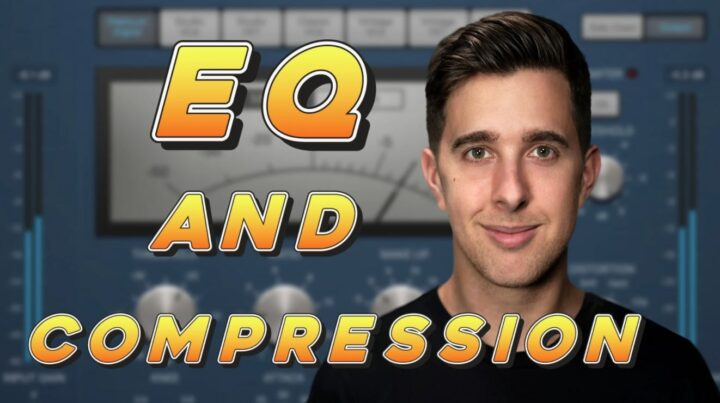
EQ is a necessary element of audio engineering, and it has been at the core of audio engineering from the beginning. Both parametric and graphic EQs have been used in audio engineering from the beginning.
This course is valuable because it will teach how to use EQ in audio engineering. You’ll also learn about compression, which is paramount to audio engineering.
Students: 600+ | Rating: 99%
What’s Covered
- EQ Introduction
- Graphic EQ Overview
- Parametric EQ Overview
- Compression Introduction
- Threshold and Ratio
- Makeup Gain
- Attack and Release
- Knee
- Limiter, Distortion + Parallel Compression
- Sidechain Compression
13. Vocal Production – How to Prepare a Vocal for Mix
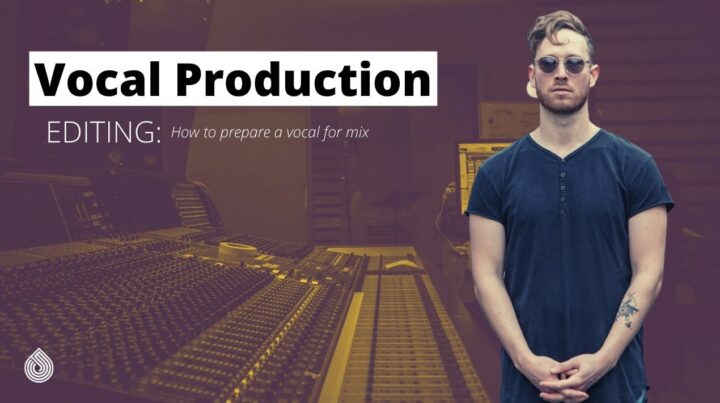
This audio engineering course covers editing a vocal track to produce the best possible mix production.
It offers practical tips and exercises for editors of any level by going over concepts such as background noise, breaths, plosives, sibilance, comping, and rhythmic alignment.
Students: 30+ | Rating: 99%
What’s Covered
- Background Noise
- Breaths
- Plosives
- Sibilance
- Comping
- Rhythmic Alignment
14. Audio Mastering in Logic Pro X
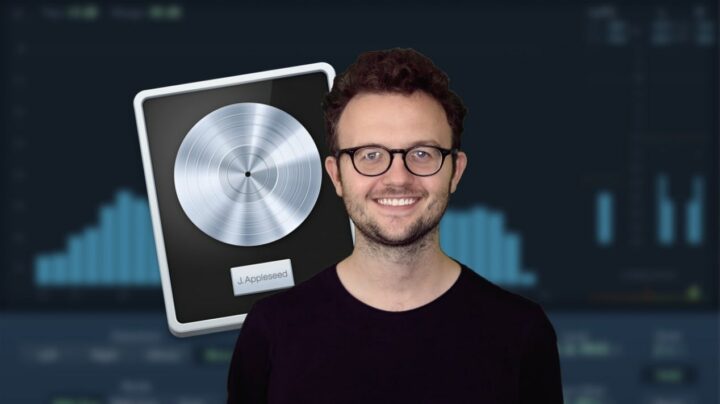
This audio mastering course is a great starting point for anyone looking to learn the basics of audio mastering.
The course will speak about peak headroom vs. dynamic headroom, compression, limiting, finding the loudness sweet spot, and more.
You will also learn how to export your mixes from Logic Pro X and use dynamic EQ and mid-side processing.
Students: 1,100+ | Rating: 86%
What’s Covered
- Peak Headroom vs. Dynamic Headroom
- Compression
- Limiting
- Fixed Monitoring Level
- Finding the Loudness Sweet Spot
- Reference Tracks
- Loudness Normalization
- Loudness Units (LUFS)
- True Peak
- Export Settings from Logic Pro X
- Album Mastering/EP Mastering
- Dynamic EQ
- Mid-Side Processing
15. Compression: A Quick, Easy Guide
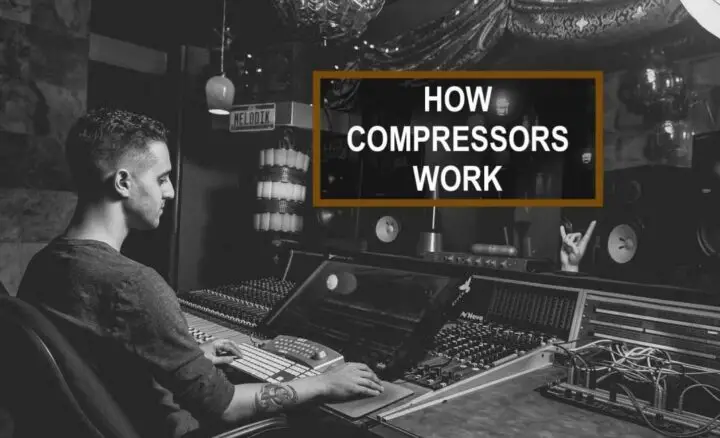
Compression is a style of audio engineering used to limit the dynamics of signals. Audio engineers, musicians, and music producers need to understand what compression does for their sound to get the desired result.
This course covers the basics of using compressors, including what it does for your sound, setting up a compressor, and using compression in the mixing stage of making music.
Students: 400+ | Rating: 99%
What’s Covered
- Compressor Overview
- Threshold and Ratio
- Attack
- Release
- Makeup Gain
- Dialing it In
Frequently Asked Questions
Can You Study Sound Engineering Online?
With the vast number of audio engineering courses available online today, studying sound engineering can be a rewarding experience for everyone. You can learn about music and audio engineering techniques and have the opportunity to join online communities taught by some of the best audio engineers in the industry.
What Education Do You Need To Be An Audio Engineer?
In most cases, a bachelor’s degree in Audio Engineering is accepted and required by employers. Audio engineering schools offer degrees ranging from associate degrees to PhDs. Audio engineering courses are available to anyone interested in recording music, regardless of their education level.
Can You Be A Self-Taught Audio Engineer?
Yes, you can be a self-taught audio engineer. However, you can be a successful audio engineer without attending an audio engineering school.
Audio engineering schools are important for artists interested in becoming professional audio engineers because they enable students to learn from experienced mentors. Audio engineers have excellent technical skills, so learning the fundamentals of recording music with online video tutorials and experimentation is a great way to develop these skills.
Do Audio Engineers Need A Degree?
Attending music school is usually the best way to become an audio engineer. Music school students focus on learning about the recording process and equipment while also developing their skills as sound engineers. However, you don’t need to attend an audio engineering school to become a successful engineer. Audio engineers have excellent technical skills, so online courses can be a fun way for aspiring engineers to learn the skills that they need.
Audio engineering is a dynamic and vital field, offering opportunities to work in diverse roles such as live sound production, studio recording, and sound design.
Most audio engineers start their journey in recording studios, mastering the art of handling multiple tracks, honing their ear training, and gaining in-depth knowledge of tools such as Pro Tools and mixing consoles.
Whether you dream of recording live music, creating movie soundtracks, or setting up your home studio, understanding the practical aspects of sound engineering is key.
Courses covering topics from basic electronics to music theory can equip you with the necessary skills for entry-level positions and beyond.
Sound effects and signal flow are integral components of sound engineering, and gaining proficiency in these areas can set you on a path to a good career. Moreover, these skills are not limited to traditional recording engineers. They can also be used to master music, whether it’s for a live setting or a studio recording.
In the end, the journey of an audio engineer is filled with continuous learning, adapting to different roles, and always striving for the perfect sound. So, start today and immerse yourself in the exciting world of sound engineering.
I hope you find these courses helpful as you begin to learn audio engineering. Good luck!
Related:

